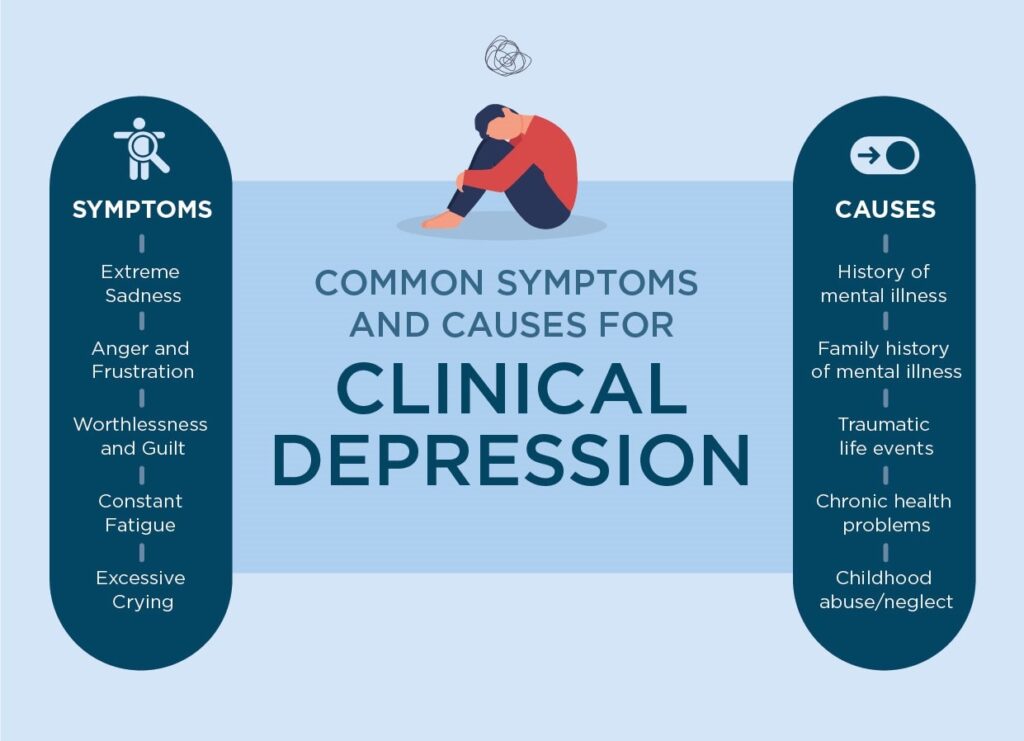Clinical depression, also known as major depressive disorder, is a serious mental health condition that can have a significant impact on a person&8217;s daily life. While it&8217;s normal to experience feelings of sadness or hopelessness from time to time, clinical depression is a persistent and often debilitating condition that requires professional treatment. In some cases, clinical depression can become an emergency that requires immediate intervention. In this blog post, we&8217;ll explore when clinical depression becomes an emergency and what steps you can take to get help.
What is Clinical Depression?
Clinical depression is a mood disorder that causes persistent feelings of sadness, hopelessness, and loss of interest in activities that a person once enjoyed. It can also cause physical symptoms like fatigue, changes in appetite and sleep patterns, and difficulty concentrating. While the exact causes of clinical depression are not fully understood, it&8217;s believed to be a combination of genetic, environmental, and biological factors.
When Does Clinical Depression Become an Emergency?
While clinical depression can be a serious condition that requires professional treatment, it doesn&8217;t always require emergency intervention. However, there are certain signs and symptoms that may indicate a person is experiencing a mental health emergency. These can include:
1. Suicidal thoughts or behavior
If a person is experiencing thoughts of suicide or has made a suicide attempt, it&8217;s important to seek immediate medical attention. This can involve calling emergency services or going to the nearest hospital emergency department.
2. Psychotic symptoms
In some cases, clinical depression can be accompanied by psychotic symptoms like hallucinations or delusions. If a person is experiencing these symptoms, it&8217;s important to seek emergency help right away.
3. Extreme agitation or aggression
If a person is experiencing extreme agitation or aggression, it&8217;s important to seek emergency help to prevent harm to themselves or others.
4. Severe physical symptoms
In rare cases, clinical depression can cause severe physical symptoms like chest pain or difficulty breathing. If a person is experiencing these symptoms, it&8217;s important to seek immediate medical attention.
What Steps Can You Take to Get Help?
If you or a loved one is experiencing clinical depression, it&8217;s important to seek professional help. This can involve seeing a mental health professional like a psychiatrist or psychologist or talking to your primary care physician. In some cases, medication may be prescribed to help manage symptoms of depression. Therapy and counseling can also be effective treatments for clinical depression.
In conclusion, clinical depression is a serious mental health condition that can require professional treatment. While it doesn&8217;t always require emergency intervention, there are certain signs and symptoms that may indicate a mental health emergency. With the right treatment and support, it&8217;s possible to manage symptoms of clinical depression and improve quality of life.
